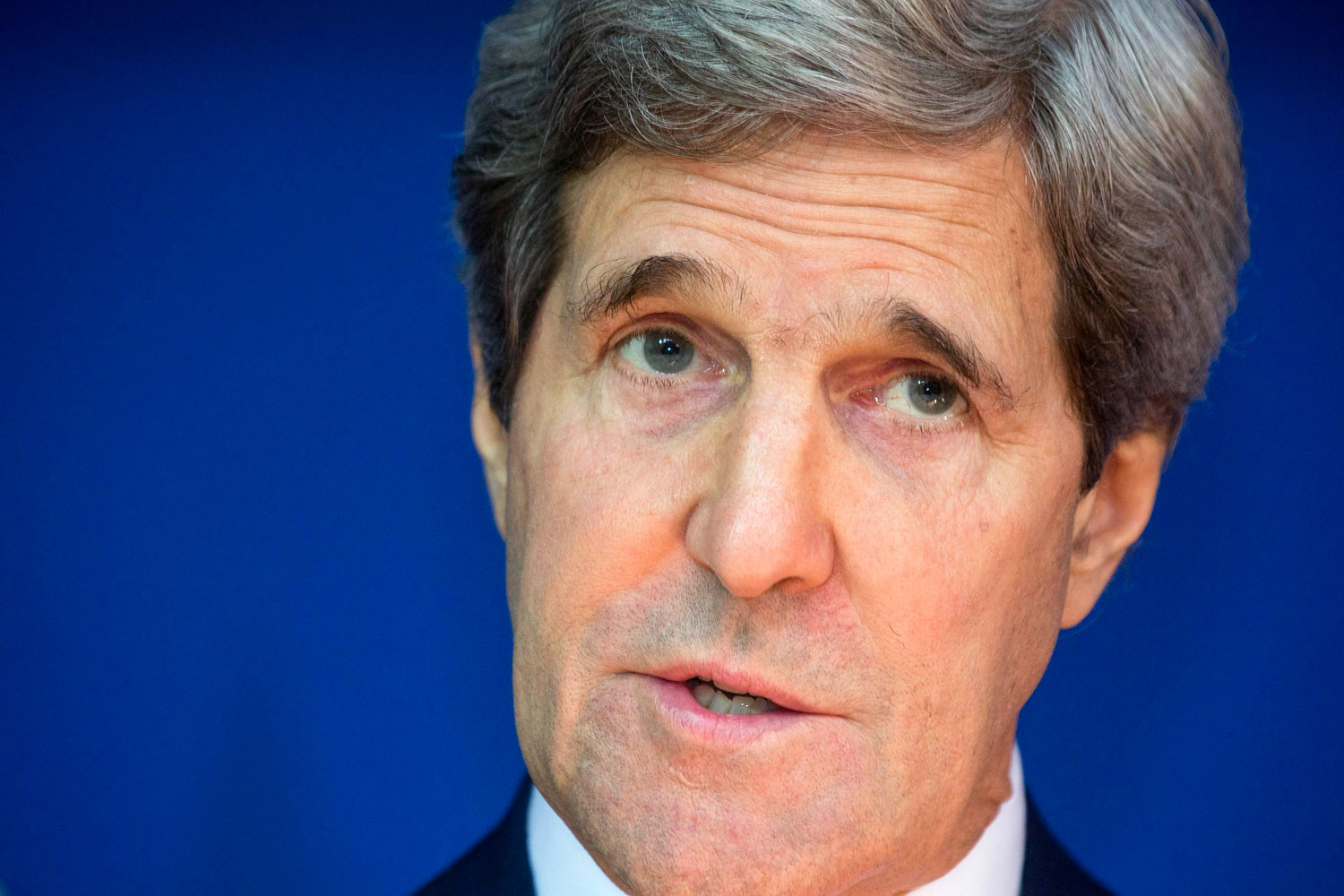
When Secretary of State John Kerry meets with his Russian counterpart in Geneva on Thursday to discuss Russia’s incursions into eastern Ukraine, his trump card will be the threat of wide-ranging sector sanctions, the most serious response leveled by the Obama Administration. And while Kerry has argued that imposing sanctions on Russian banking, energy, mining, arms and other industries would have a “profound impact” on the country’s economy, he has also said sanctions could have economic effects back home. “If you start going down that road,” he told a Senate committee panel last week, “it’s not just them who feel it, we’ll feel it too.”
Calculating the potential impact of sanctions on Russia’s behavior vs. the cost borne by the American economy is now an important part of Washington’s decisionmaking over how to manage the Ukrainian crisis.
American business interests are concerned about the cost of sanctions. Some name-brand U.S. giants like ExxonMobil, Coca-Cola, Pepsi and General Motors invest or earn billions of dollars in Russia, as the New Republic recently noted. “The U.S. business community recognizes the seriousness of the situation in Ukraine as well as the damage to the global economy that sanctions could inadvertently unleash,” says Myron Brilliant, head of international affairs at the U.S. Chamber of Commerce. “The chamber urges policymakers to continue to gauge carefully the impact sanctions could have on already disappointing economic growth in a number of key markets as they chart a path forward,” Brilliant says.
But hawks at the U.S. State Department see the cost of wide-reaching sanctions as comparatively small next to America’s global business activity. U.S. exports to Russia totaled $11.2 billion in 2011, according to the Observatory of Economic Complexity, while Russian exports to the U.S. totaled $26.4 billion. Because those exports represent a larger part of Russia’s overall economy, Moscow would be hurt more than the U.S. in a trade war: Russia’s total exports in 2011 were $508 billion, compared with $1.37 trillion for the U.S. Last month alone, the U.S. exported over $190 billion worth of goods.
“The fundamental thing is that Russia’s GDP is 2.9% of global GDP, and U.S. trade with Russia is about 1% of total U.S. trade,” says Anders Aslund, a Russian specialist at the Peterson Institute for International Economics. “In the big scheme of things, Russia’s economy doesn’t much matter,” he adds.
For their part, U.S. businesses say billions of dollars in lost trade is too much to pay for an uncertain result. They say American sanctions would have a limited impact on the Russian economy and prefer the State Department to work with the European Union, which has much closer ties to Russia. Unilateral sanctions, says Brilliant, would “certainly be ineffective.”
But unilateral sanctions are likely all that is available, for now. There is bipartisan support for sector sanctions on the Senate Foreign Relations Committee, including from ranking Republican Bob Corker of Tennessee and members Republican Senator Marco Rubio of Florida and Democratic Senator Chris Murphy of Connecticut. But the E.U. is hesitant to move forward with harsher sanctions.
If the U.S. does go it alone, the most powerful sanctions could be financial, increasing the cost of capital for Russian companies even without the support of the Europeans. If the U.S. targets the top four state-run Russian banks, says Aslund, the E.U. could even benefit economically and the U.S. could significantly hurt the Russian economy. “If Russian finances are being hit, which I favor, then the money would flow out of Russia,” says Aslund. Russia’s GDP would decline by “several” percentage points, he argues, but he acknowledges he isn’t sure if it would “halt” Putin’s aggression.
For now, the betting is mixed on whether the State Department will go ahead with energy-sector sanctions, which are particularly important since a major source of Russia’s wealth comes from what it extracts from the ground. Edward Chow, an international energy expert at the Center for Strategic and International Studies, says the State Department is “getting much closer” to announcing such measures, thanks to the deteriorating conditions in eastern Ukraine. “It will be more symbolic than hurt in the very short run, but it’s not completely negligible,” says Chow. Aslund says “nobody” is arguing for oil sanctions but leaves open the possibility of natural gas sanctions.
More Must-Reads From TIME
- The 100 Most Influential People of 2024
- The Revolution of Yulia Navalnaya
- 6 Compliments That Land Every Time
- What's the Deal With the Bitcoin Halving?
- If You're Dating Right Now , You're Brave: Column
- The AI That Could Heal a Divided Internet
- Fallout Is a Brilliant Model for the Future of Video Game Adaptations
- Want Weekly Recs on What to Watch, Read, and More? Sign Up for Worth Your Time
Contact us at letters@time.com